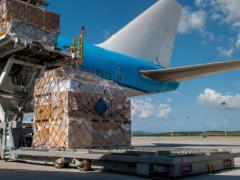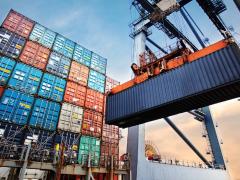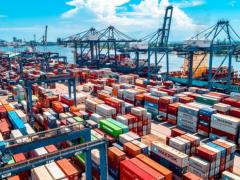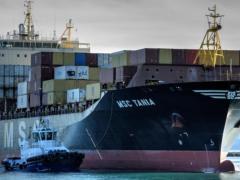Global air cargo demand grew by 2.2% year-on-year in May despite a double-digit drop in the Asia-North America trade lane driven by shifting US trade policies.
This is according to the latest IATA data released on Monday.
The demand increase, measured in cargo tonne-kilometres (CTK) slightly outpaced a 2% rise in capacity, measured in available cargo tonne-kilometres (ACTK), resulting in a global cargo load factor of 44.5%.
“Air cargo demand globally grew 2.2%. That is encouraging news as a 10.7% drop in traffic on the Asia to North America trade lane illustrated the dampening effect of shifting US trade policies,” said IATA DG, Willie Walsh.
“Even as these policies evolve, already we can see the air cargo sector’s well-tested resilience helping shippers to accommodate supply chain needs to flexibly hold back, re-route or accelerate deliveries.”
However, African airlines experienced a 2.1% year-on-year decline in air cargo demand, despite increasing capacity by 2.7%, leading to a cargo load factor of 42.2%.
The continent accounted for 2% of the global air cargo market. In contrast, Asia-Pacific airlines led with an 8.3% demand growth and 5.7% capacity increase, achieving a 46.1% load factor.
European carriers saw a 1.6% demand rise with a 1.5% capacity increase, posting a 51.8% load factor. Middle Eastern carriers reported a 3.6% demand growth and 4.2% capacity increase, with a 46.3% load factor.
Latin American carriers recorded a 3.1% demand increase and 3.5% capacity growth, with a 36.1% load factor. North American carriers faced the steepest decline with a 5.8% drop in demand and a 3.2% reduction in capacity, resulting in a 38.2% load factor.
The IATA data highlighted several operating environment factors. World industrial production rose 2.6% in April, while air cargo volumes grew 6.8% over the same period, outpacing the 3.8% growth in global goods trade.
Jet fuel prices in May were 18.8% lower than the previous year and 4.3% below April. However, global manufacturing contracted, with the Purchasing Managers’ Index falling to 49.1, below the 50 mark, while new export orders were negative at 48, reflecting pressures from US trade policy changes.
The air cargo sector’s role in global trade remains significant.
In 2024, airlines transported over 62 million cargo tonnes, representing more than 33% of global trade by value but less than 1% by volume, equivalent to $8.3 trillion annually or $22.7 billion daily. Typical air cargo includes smartphones, pharmaceuticals, gemstones, precious metals, cut flowers, perishables, documents, parcels, and e-commerce shipments.
The Asia-North America trade lane’s 10.7% decline was attributed to the fading effect of front-loading shipments ahead of US tariffs and changes to de-minimis exemptions on small package shipments, particularly e-commerce.













